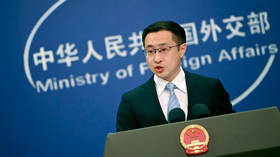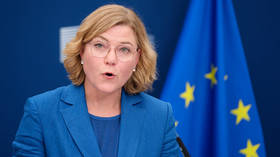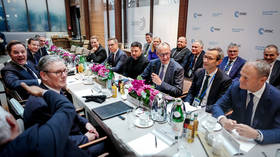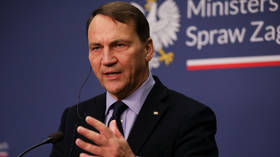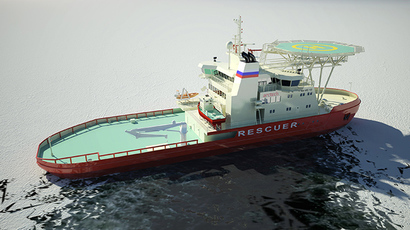Russia to create united naval base system for ships, subs in Arctic - Putin
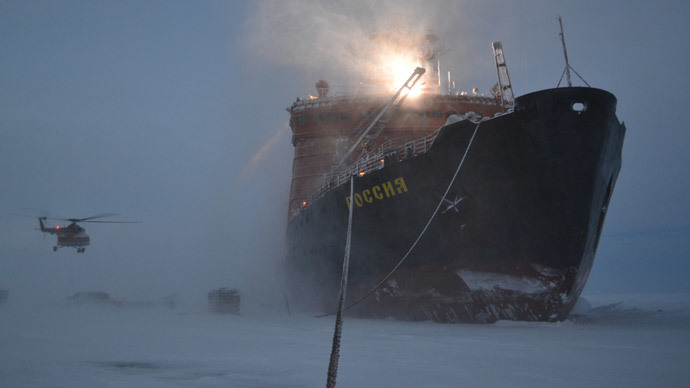
A united system of naval bases for ships and next-generation submarines will be created in the Arctic to defend Russia’s interests in the region, President Vladimir Putin said.
He urged the government to provide full state funding for the socio-economic development of the Russian Arctic through 2017-20.
Putin said that a separate state agency should be created to implement Russian policy in the Arctic and to improve the quality of governance and decision-making in this area.
“We do not need a bulky bureaucratic body, but a flexible operational structure, which will help better coordinate the activities of ministries and departments, regions and businesses,” he said.
At a Russian Security Council meeting Tuesday, the president said that suggested “strengthening of the naval component of the Federal Security Service (FSB) border guard group.”
“At the same time, we should strengthen the military infrastructure. Specifically, I’m referring to the creation of a united system of naval bases for ships and next-generation submarines in our part of the Arctic,” he added.
Putin emphasized that even the smallest aspects of the integrated security system in the Russian Arctic needed attention.

“All security issues should be thoroughly worked out during multiagency exercises and training sessions, in which the units of the Defense Ministry, Emergencies Ministry and other structures should take part on a regular basis,” Putin said.
“Russian oil and gas production facilities, loading terminals and pipelines in the Arctic must be protected from terrorists and other potential threats,” he added.
"It makes sense to create a body similar in status to the state commission with broad authority, as it was previously done for the Russian Far East," the president said, adding that he would await specific proposals from the government.
‘Moscow must safeguard every part of Russian Arctic shelf’
The president urged Russian experts to “be active in bilateral and multilateral consultations with governments of the Arctic states and assert every piece of the continental shelf of the Russian Arctic marine areas.”
Putin said that Russia is already successful in this field, as the country managed to come up with a strong argument to prove its indisputable right to a piece of land in the Sea of Okhotsk.
During the 33rd session of the UN Commission on the Limits of the Continental Shelf in March, Russia staked a claim for the area of “52,000 square kilometers in Sea of Okhotsk, which is a continuation of Russia’s continental shelf,” he said.
The problem of establishing the international legal border of the Russian continental shelf in the Arctic Ocean requires urgent and careful attention, the president said.
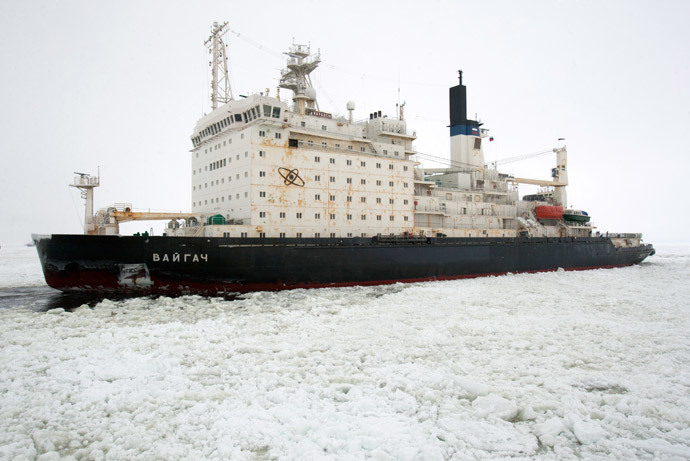
‘Northern Sea Route to become effective and profitable’
Putin said that the construction of new nuclear and diesel
icebreakers should be accelerated to develop an effective
economic model for the Northern Sea Route.
“The turnover of the Northern Sea Route must be at 4 million tons
by 2015,” he said.
The president urged the speedy completion of modern navigation
infrastructure, communications, technical services and emergency
care to be established along the Northern Sea Route – from
Russia’s Far East to Murmansk on the Barents Sea.
“We need to make sure that it would be profitable and
convenient for shipping companies to operate under the Russian
flag, so that the majority of transport in the Arctic would be
carried out by vessels under our jurisdiction,” he stressed.
The discovery of large hydrocarbon deposits in the Arctic has
sparked international competition over the region’s resources.
Regional powers are quickly filing claims for the sea shelf, with
Russia preparing to preparing to file a bid for 1.2 million
square kilometers of Arctic waters to the UN later this year.
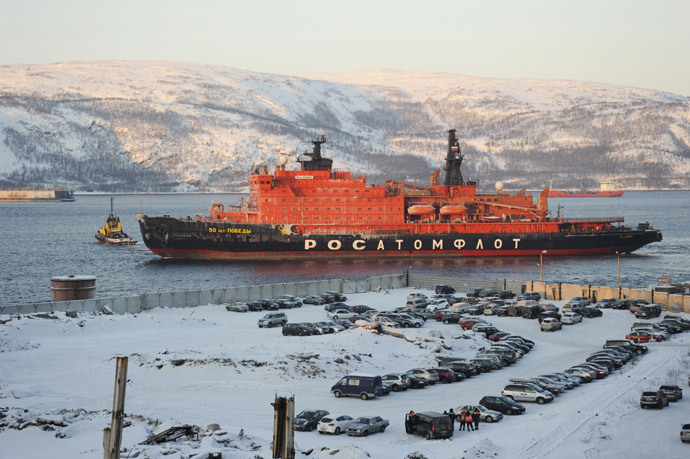
The melting Arctic ice cap has opened shipping routes and made the exploration for resources at the bottom of the world’s smallest ocean a real prospect.
The North Pole icecap has decreased by 40 percent since 1979, opening up two shipping routes, the North Sea route and the Northwest Passage, with extremely high economic potential.
Approximately 30 percent of the world’s undiscovered natural gas and 15 percent of its oil lie in the Arctic.
But an estimated 84 percent of the Arctic’s 90 billion barrels of oil and 47.3 trillion cubic meters of gas remain offshore.
According to the UN’s sea convention, countries have sovereign rights to resources within 200 nautical miles of its territorial waterways.
There are five countries with territories near the Arctic: Canada, Denmark, Norway, Russia and the US.
Russia has been seeking to secure and reinforce its military presence in the Arctic for some time now, after other nations started to express interest in the region’s vast resources.
The Basic Concept of State Policy in the Arctic, approved in 2009, outlined the creation of a dedicated military force as a primary objective.



